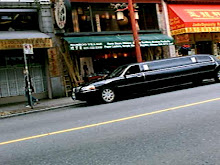Subscribe to:
Post Comments (Atom)
skip to main |
skip to sidebar












-l.jpg)
-l.jpg)

add ''sharethis''
Total Pageviews
Popular Posts
-
Empower Network | Building a business while having a life.
-
ZeekRewards - - Back Office: RAYLOKE>GPRECRUITER : 'via Blog this'
-
Three Fast Food Fatloss Tips
-
Obama touts cooperation with Asia, calls out China - CNN.com
-
Browser Add-on | ShareThis Posted using ShareThis
-
$3,275 Per Month Secret - Get5Now.com
Pages
http://www.rayloke2010weblog@blogger.com
http://www.rayloke2010weblog@blogger.com
Search This Blog
ray's shared items
ShareThis
http://www.rl2010weblog@blogger.com
http://www.rl2010weblog@blogger.com
rl2010weblog.blogspot.com
SAN FRANCISCO MISSION ST.
NEW YORK near city
NEW YORK CITY
NEW YORK
NEW YORK CITY
NEW YORK CITY
CALIFORNIA LAS VEGAS CASINOS
CANADA MONTREAL
Canada Vavcover CHINATOWN
WASHINGTON FBI Bldg.
WASHINGTON
WASHINGTON
ShareThis
http://rl2010weblog.blogspot.com
My Blog List
-
-
Ratcliffe sorry language 'offended some' after immigration comments - The Manchester United co-owner previously said the UK had been "colonised" by immigrants.1 hour ago
-
Why this drug-research company’s stock is having its worst day since 1999 - Icon’s stock is having its worst day since 1999, as an accounting probe added to investors’ worries about contract research organizations.1 hour ago
-
Zombie Labour: Starmer staggers on – podcast - After a week when it seemed all but over for Keir Starmer, John, Pippa and Kiran unpack how the prime minister survived – and what it means for Labour in...1 hour ago
-
Watch Live: Minnesota officials testify at Senate hearing on immigration - CBS News - 1. Watch Live: Minnesota officials testify at Senate hearing on immigration CBS News 2. Minnesota officials decry immigration crackdown durin...5 hours ago
-
-
-
Before history devolves into mythology: 2020’s best books on World War II - Historians grapple with the grimmest, toughest questions surrounding the war, about culpability, morality, and demagoguery during a fraught time.5 years ago
-
S&P 500 closes nominally higher amid COVID-19 spikes, muted data - The S&P 500 closed nominally higher on Thursday as investors weighed a resurgence in coronavirus infections and the possibility of a new round of shutdowns...5 years ago
-
NPR News: 03-20-2020 3PM ET -5 years ago
-
-
-
Aliens From Hell - Freeman at Conspiracy Con 2013 - What occult practices have the Nazis, and now NASA, employed to communicate and channel entities into our dimension. What is the real purpose of the billio...10 years ago
-
Bankruptcy in Malaysia - Courtesy of: iMoney.my http://www.imoney.my/articles/bankruptcy/?utm_source=outbrain&utm_medium=CPC&utm_campaign=Traffic_MY_all_RSS11 years ago
-
A reminder to update Picasa - *We just updated Picasa. To ensure that sharing to Google+ still works, please update to the latest version or turn on automatic updates. Thanks, and happy...12 years ago
-
-
-
Picasa 3.9: Now with Google+ sharing and tagging - Posted by Chandrashekar Raghavan, Product Manager Picasa 3.9, the latest update to the Picasa client, is ready for you to try out! This update includes Goo...14 years ago
-
-
-
Followers
Blog Archive
-
▼
2011
(41)
-
▼
September
(10)
- TAIWAN HOTEL GRAND
- TAIWAN FAST TRACK...2010
- picasaweb.google.com/rayloke1: The Unemployed Aren...
- From 'dirt poor' to $9.3 billion: Meet China's ric...
- weblog2011webnet: Top of Chinese wealthy's wish li...
- Russell Razzaque: How Religion Can Inoculate Again...
- Denied By God, Rick Perry Now Wants To Be President
- The GOP War on Voting | Rolling Stone Politics
- Chinese tycoon says controversy could kill deal - ...
- Australian High Court blocks Malaysia refugee swap...
-
▼
September
(10)
About Me
-l.jpg)
-l.jpg)















-l.jpg)
Deeper insights into radicalization may spring from developments in what's called Relational Frame Theory, which is based on a body of empirical research pioneered by Steve Hayes of the University of Nevada. The theory focuses on the fact that people constantly derive assumptions and conclusions about things they were never directly taught. In our early years, the theory holds, we learn certain arbitrary ways to compare things to each other (relational framing), and it is through a web of such interlinking comparisons (relational networks) that we then start to make sense of the world around us.
ReplyDeleteSo if one's parents teach one about, say, Islam—and do so within the context of a relatively comfortable, happy and nurturing childhood—one is likely to derive an association between the wider concept of religion and the pleasant experiences of one's earlier years. This would then make it harder to embrace an ideology based on hating people of different faiths.
Thus contrary to the insistence of some that religion is inherently divisive and harmful, this research suggests that early-life exposure to moderate forms of religion may be a vital inoculator against the dangers of extremist recruitment.
Dr. Razzaque is a British psychiatrist and author of "Human Being To Human Bomb: Inside The Mind Of A Terrorist" (Totem, 2005).